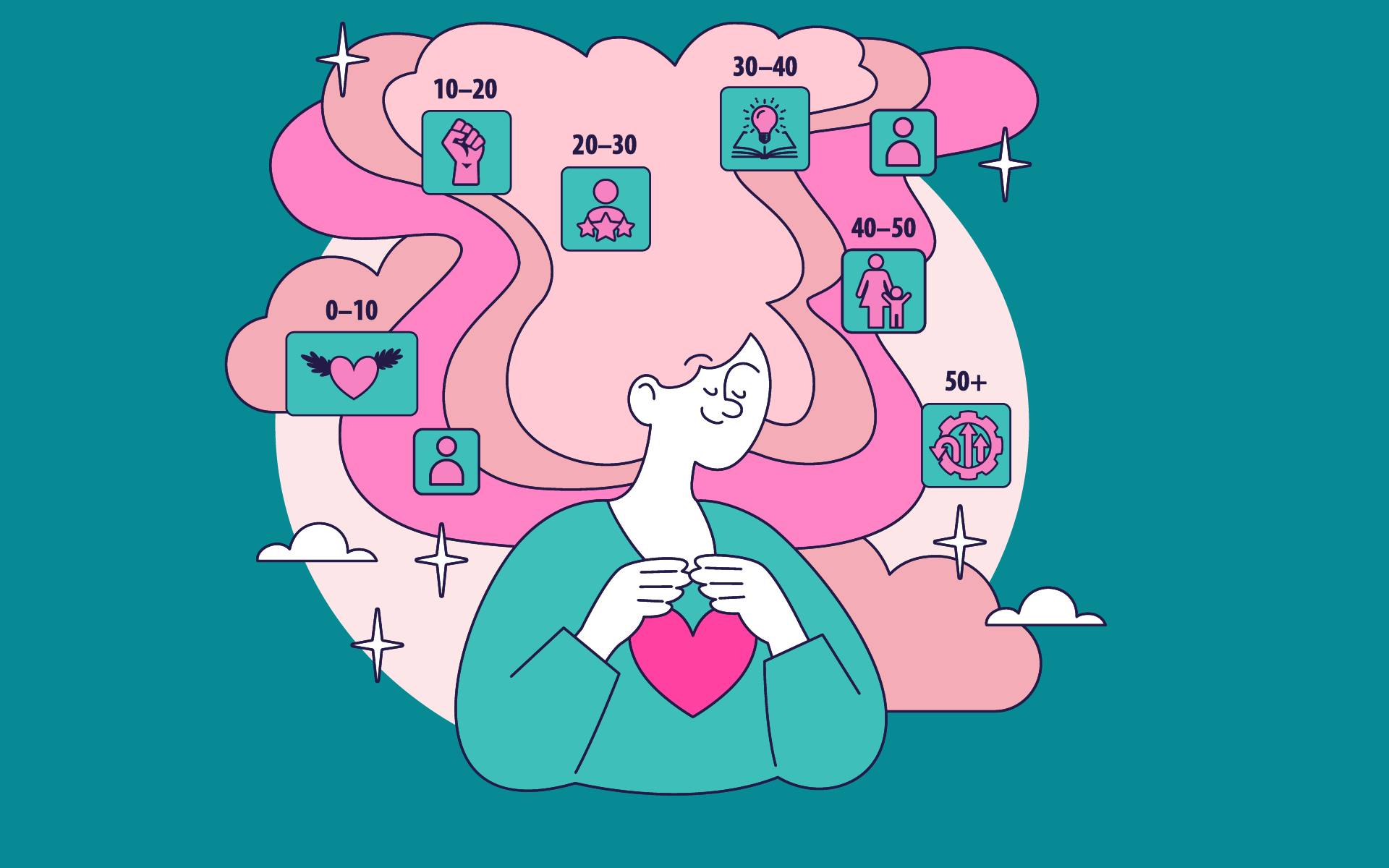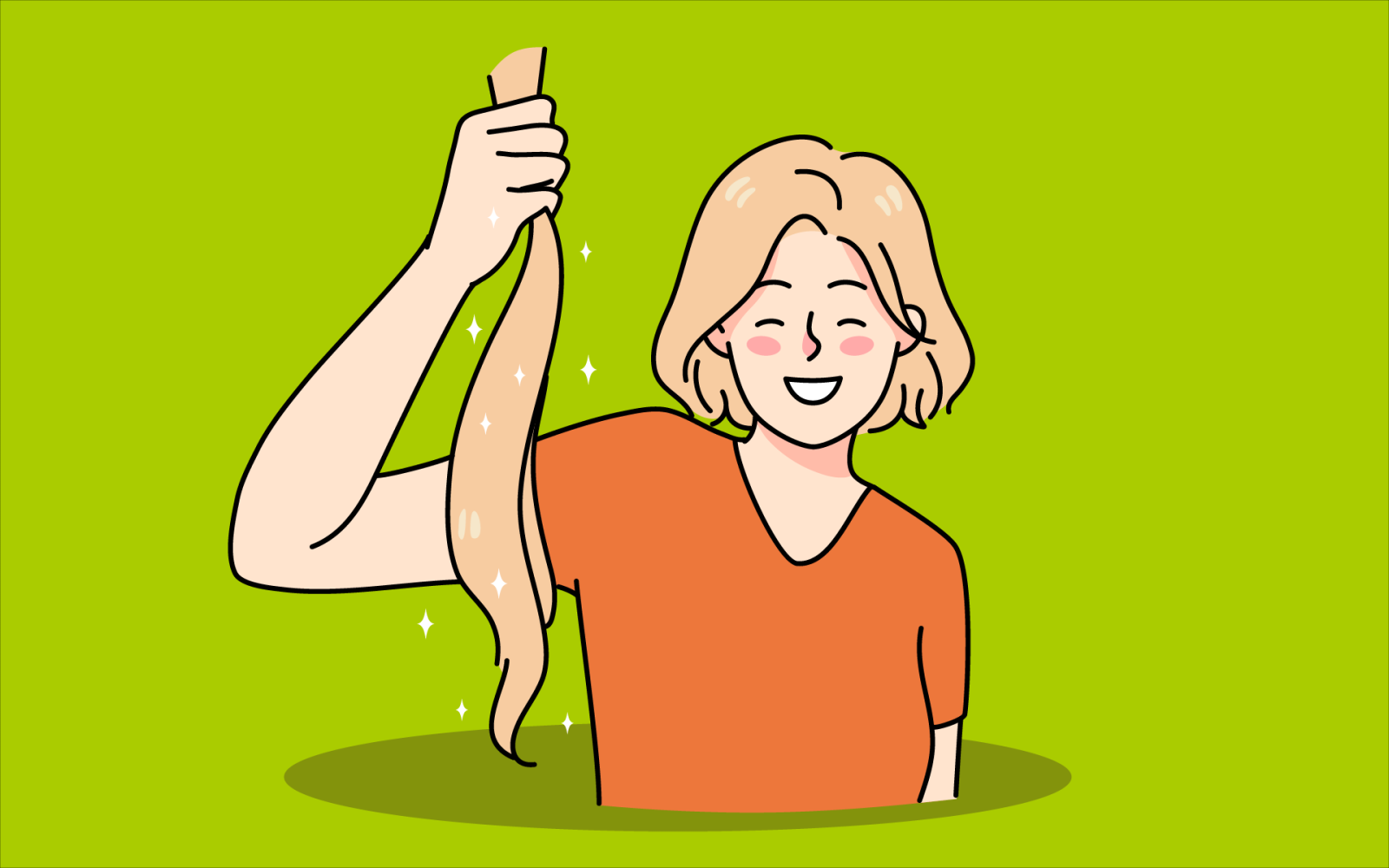A map of myself through the ages

How did I get to be who I am over the last five decades?
What if I told you that the most important relationship you’ll ever have isn’t with your partner, your children, or your career, but with yourself? Yet it’s the one relationship most of us never consciously tend to.
I’ve been thinking about this lately, particularly as I watch the women around me – friends, colleagues, clients – strive to find their footing in a world that seems designed to tell them they’re either too much or not enough.
We’re phenomenal beings, yet so many of us struggle to see our own worth clearly.
Self-worth literally means “the value of oneself”, how you value your own significance. That idea has changed for me over the decades, in ways both subtle and seismic.
I’m halfway through my fifth decade, and I realise each decade has shaped not only who I am, but how I see myself.
Mapping this journey has taught me something profound: understanding how our self-worth evolves can be the key to claiming it more fully.
0–10: Freedom, adventure and wonder
Melissa Etheridge sings, “When I was a child, I dreamed like a child of wonder.” That was me. In my first decade, my self-worth came from exploration and imagination.
I was a free-ranging ’70s-era kid with a ragtag band of neighbourhood friends, spending hours hunting tadpoles and frogs in the Braamfontein Spruit, twirling river moss on sticks and flinging it at each other, making forts, conquering new worlds in imaginative play, and cycling through the veld on our chopper bikes.
I loved my life. It was steeped in nature and friendship. I rarely wore shoes in summer. My mother had to drag me, protesting, into the bath every night. “But my feet are clean!” I’d shout, hoping dirt somehow didn’t count if it came from the veld.
School came as a shock. Suddenly, freedom was replaced with conformity. I struggled to sit still while birds sang outside. School felt like the absence of self, a system built to flatten uniqueness. There were some wonderful teachers, but school as an institution? Not for me.
10–20: Rebellion as identity
This is when my self-worth shifted into rebellion. High school became the stage for resistance.
I styled my hair, flouted uniform rules, and racked up detentions like merit badges. It was the ’80s, after all: big hair, dystopian music and being “just another brick in the wall”. I raged against the machine.
Funnily enough, I still do. It turns out rebellion, when paired with creativity, can be a gift. Today, it underpins my reputation as an innovator and ideas person. Seeing systems with light detachment turned out to be valuable, not defiant.
20–30: Outsourced worth
In my 20s, self-worth felt outsourced. It lived in other people’s opinions, approval, invitations. I tried on versions of myself like costumes – again, Melissa Etheridge lyrics looped in my head: “Saw you with your new friends, you wear them so well.”
This was the decade of adulting – first jobs, fast promotions, climbing the corporate ladder. Outwardly, I looked successful. Inside, I was fragile.
There’s a model called conditional self-worth, where your value depends on meeting external standards – achievement, appearance, popularity. That was me then. What looked like confidence was often performance.
I offset the pressure with weekends of clubbing, dancing and laughter – my joy lived at the bar with friends. I was seeking something true, even if I didn’t yet have the language for it.
30–40: Serious study and new narratives
The 30s were my academic decade. I did my MBA and loved it, eventually. The finance modules nearly undid me. I’ve had a maths block since school, but somehow, I made it through.
My self-worth wrapped itself around my mind and intellect. I worked at business schools, learning about business and the business of learning. It was a smorgasbord of ideas. As a social introvert, I savoured both connection and solitude. Then came love, marriage, and the South African version of My Big Fat Greek Wedding.
This decade brought the question of children. I wasn’t sure I was “parent material.” But that changed in my 40s.
40–50: The experiential years
Motherhood transformed my narrative. Just before my son arrived, I completed a second master’s, this time in philosophy, which I adored. Then came parenting, which grounded my self-worth in the heart and hands, not just the head.
My son is now 10. While parenting can sometimes feel like putting your self-worth on hold – homework, school runs, constant logistics – it has also returned me to my childhood self. Motherhood is experiential. It humbled and reshaped me. It made me braver.
50+: Reinvention and rooted joy
This is, hands down, my best decade yet. I started businesses and redefined my relationship with institutional ways of working. Then COVID came – a planetary pause that forced many of us to consider what truly matters.
I stopped caring so much about appearances or performance. I’m happy going to the movies solo in jeans and a hoodie. I’ve re-entered the corporate world in a way that feels aligned, mature, and calm. I care more about whether what I do nudges the dial than about how impressive it sounds.
Time has become the ultimate filter. I ask: does this bring joy? Does it feel meaningful? If not, I don’t waste what little time I have left trying to prove anything.
Becoming is the work, and now it’s your turn
Self-worth doesn’t arrive all at once. It unfolds. It’s shaped by rebellion and responsibility, intellect and intuition, pressure and play. Mine has meandered across decades, sometimes fragile, sometimes fierce.
Self-worth isn’t something we find. It’s something we grow. It deepens when we pay attention. When we name our chapters. When we let go of being impressive and choose to be real.
If you’re ready to explore your own evolving story, try these exercises:
Lifeline or decade timeline exercise
Map key moments by decade. Ask: “When did I feel most myself?” “When did I feel unseen?” “What helped me reclaim my worth?” Give each decade a chapter title or self-worth hashtag.
Draw your Tree of Me
- Roots: Your values and origins
- Trunk: Your core traits (ask close friends: “What words describe me best?”)
- Branches: Dreams or future self (What brings joy? How do you want to spend your time in 5 years?)
- Leaves: Current self-care and strengths (What do you do just for you? What are you good at?)
Studies show that our identities are not as fixed as we once thought. Identity is the evolving story we tell ourselves about who we are, shaped by roles, culture, values, and experience.
When our self-worth is fused with a narrow identity (mother, professional, partner), we can feel lost when those roles shift. But when identity is fluid and self-authored, it allows for growth, joy and authentic worth.
Try this reflective prompt: “Who am I without my job, title, family role, or appearance?”
Your story holds the clues to how you’ve valued yourself. Maybe it’s time to trace your arc, honour what you find, and plant a few seeds for the decade to come. After all, you are phenomenal. The question is, do you know it yet?




